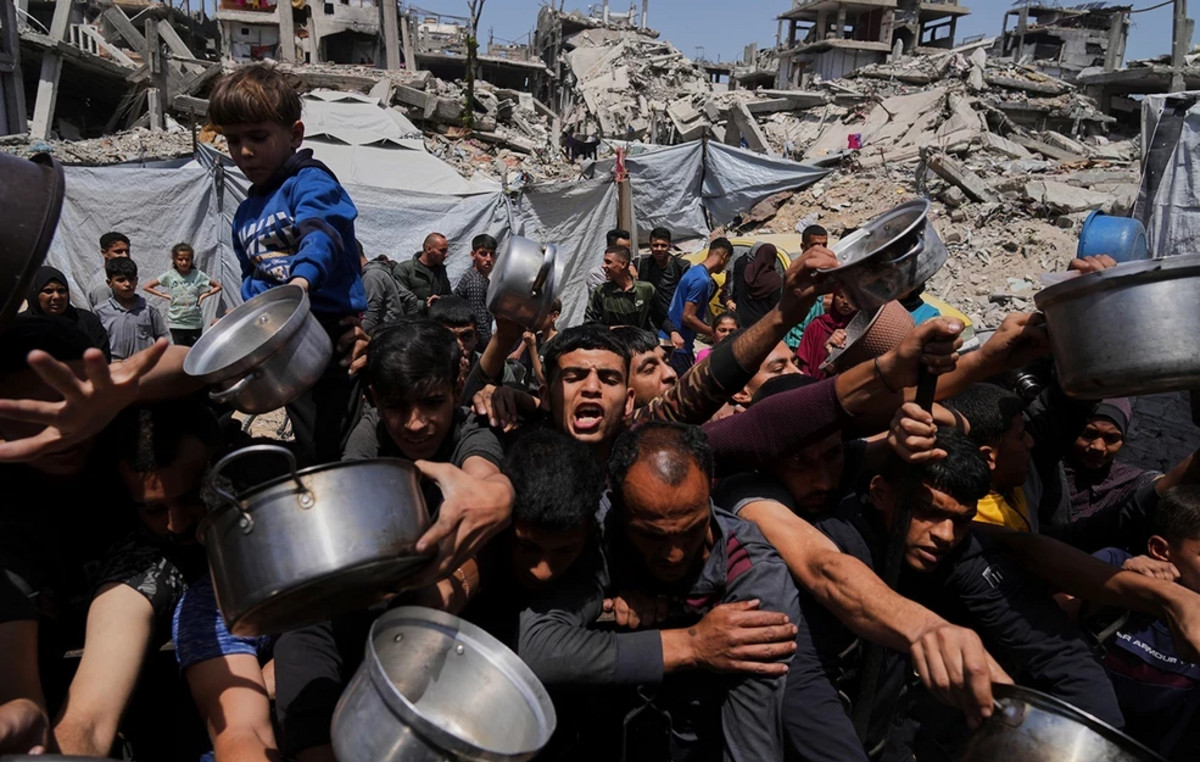There was a risk and the alarm had already been raised in recent weeks by the World Health Organization. Mariupol, the Ukrainian city in the hands of Russian military forces, has entered quarantine to stem a cholera epidemic.
A city put to the test by bombing, deprived of basic facilities that have significantly reduced access to clean water, food and sanitation. All consequences of a war that inevitably increase the risk of malnutrition and related diseases.
And it is precisely the reduced access to clean water that has favored the development of cholera in the Ukrainian town. Here is everything you need to know about the causes of spread, symptoms and treatment of this disease, according to the guidelines reported on the epidemiological platform. Epicenter of the website of the Istituto Superiore di Sanità.
Meaning of cholera
Cholera is an acute diarrheal infection caused by the bacterium Vibrio cholerae. There are two serogroups that can cause epidemics: the Vibrio cholerae 01 and the Vibrio cholerae 0139. Other groups of Vibrio cholerae they can cause mild forms of diarrhea, which however do not develop into real epidemics.
How it is transmitted
The cholera virus it is transmitted by oral contact, direct or indirect, through contaminated faeces or food and in the most serious cases it can lead to dangerous phenomena of dehydration.
The disease can therefore be contracted following the ingestion of water or food contaminated with fecal material of infected individuals (sick or healthy or convalescent carriers). The foods most at risk for the transmission of the disease are raw or undercooked ones and, in particular, seafood. However, other foods can also act as a vehicle. \
The causes of the spread of cholera
The poor sanitation conditions in the war territories are among the main causes of the spread of the cholera virus. The mismanagement of sewage systems and drinking water also contributes to generating epidemics. This bacterium can also live in natural environments, such as brackish rivers and coastal areas: for this reason there is a high risk of contracting the infection even through the ingestion of molluscs.
Without the contamination of food or water, direct person-to-person infection is very rare under normal sanitation conditions. In fact, it is very difficult to infect other individuals through simple contact since the bacterial load necessary for the transmission of the infection must exceed one million.
The disease has an incubation period varying between 24 and 72 hours (2-3 days), but in exceptional cases it can fluctuate between 2 hours and 5 days, depending on the number of bacteria ingested.
Symptoms of cholera
In general, in 75% of cases, infected people do not show any symptoms. Conversely, among those who have them, only a small fraction develop a severe form of the disease. When present, the prevailing symptom is diarrhea, watery and brown at the beginning and then clear and liquid, with a typical aspect defined as «rice water». In some people, the continuous loss of fluids can lead to dehydration and shock, fatal only in the most severe cases. Fever is not a prevalent symptom of the disease, while vomiting and leg cramps may occur.
How cholera is treated
Crucial in the treatment of cholera is the reintegration of liquids and mineral salts lost due to diarrhea and vomiting. Oral rehydration can occur through the intake of solutions rich in sugars, electrolytes and water, and must be undertaken immediately.
In severe cases, fluid recovery can be intravenous and, especially at the beginning, require large volumes of liquids, up to 4-6 liters.
With adequate rehydration only 1% of patients die and usually, following fluid restoration, the disease resolves on its own.
Antibiotic treatment is also possible – generally with tetracyclines or ciprofloxacin – to shorten the course of the disease and reduce the intensity of symptoms, but it is mainly used for the most severe forms or in patients most at risk, such as the elderly.
Other stories of Vanity Fair that may interest you:
Mariupol, cholera alert. “The corpses rot under the rubble”
The impact a war can have on global health
Source: Vanity Fair







